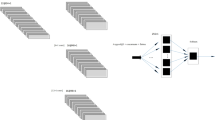Abstract
To save more lives, critically ill patients need to make timely decisions or predictive diagnosis and treatment in emergency and harsh conditions, such as earthquakes, medical emergencies, and hurricanes. However, in such circumstances, medical resources such as medical staff and medical facilities are short supply abnormally. So, we propose a method for decompensation prediction in emergency and harsh conditions. The method includes components such as patient information collection, data selection, data processing, and decompensation prediction. Based on this, this paper demonstrates the method using MIMIC-III data. Firstly, we tried a series of machine learning models to predict physiological decompensation. Secondly, to detect patients whose condition deteriorates rapidly under severe and limited circumstances, we try to reduce the essential physiological variables as much as possible for prediction. The experimental results show that the Bi-LSTM-attention method, combined with eleven essential physiological variables, can be used to predict the decompensation of severe ICUs patients. The AUC-ROC can reach 0.8509. Furthermore, these eleven physiological variables can be easily monitored without the need for complicated manual and massive, costly instruments, which meets the real requirements under emergency and harsh conditions. In summary, our decompensation prediction method can provide intelligent decision support for saving more lives in emergency and harsh conditions.
Access this chapter
Tax calculation will be finalised at checkout
Purchases are for personal use only
Similar content being viewed by others
References
Bates, D.W., Saria, S., Ohno-Machado, L., Shah, A., Escobar, G.: Big data in health care: using analytics to identify and manage high-risk and high-cost patients. Health Aff. 33(7), 1123–1131 (2014)
Miwa, M., Sasaki, Y.: Modeling joint entity and relation extraction with table representation. In: Proceedings of the 2014 Conference on Empirical Methods in Natural Language Processing (EMNLP), pp. 1858–1869 (2014)
Vaswani, A., Shazeer, N., Parmar, N., Uszkoreit, J,. Jones, L.: Attention is all you need. In: Advances in Neural Information Processing Systems, pp. 5998–6008 (2017)
Lipton, Z.C., Kale, D.C., Elkan, C., Wetzel, R.: Learning to Diagnose with LSTM Recurrent Neural Networks, pp. 1–18 (2015)
Lample, G., Ballesteros, M., Subramanian, S., Kawakami, K., Dyer, C.: Neural architectures for named entity recognition. In: Proceedings of the 2016 Conference of the North American Chapter of the Association for Computational Linguistics: Human Language Technologies, pp. 260–270 (2016)
Daniell, J.E., Khazai, B., Wenzel, F.: Uncovering the 2010 Haiti earthquake death toll. Nat. Hazards Earth Syst. Sci. Discuss. 1, 1913–1942 (2013).https://doi.org/10.5194/nhessd-1-1913-2013
COVID-19 Dashboard by the Center for Systems Science and Engineering (CSSE) at Johns Hopkins University (JHU). https://coronavirus.jhu.edu/map.html. Accessed 14 May 2020
Ghali, J.K.: Precipitating factors leading to decompensation of heart failure. Traits among urban blacks. Arch. Int. Med. 1988, 148(9) (2013)
Ramachandran, J.: Hepatitis E superinfection produces severe decompensation in patients with chronic liver disease. J. Gastroenterol. Hepatol. 19(2), 134–138 (2004)
Berzigotti, A., Garcia-Tsao, G., Bosch, J., Grace, N.D.: Obesity is an independent risk factor for clinical decompensation in patients with cirrhosis. Hepatology 54(2), 555–561 (2011)
Harutyunyan, H., Khachatrian, H., Kale, D.C., Steeg, G.V.: Multitask learning and benchmarking with clinical time series data. Scientific Data (2017)
Lasko, T.A., Denny, J.C., Levy, M.A.: Computational phenotype discovery using unsupervised feature learning over noisy, sparse, and irregular clinical data. PLoS ONE 8, e66341 (2013)
Razavian, N., Marcus, J. Sontag, D.: Multi-task prediction of disease onsets from longitudinal lab tests. In: 1st Machine Learning for Healthcare Conference (2016)
Xu, Y., Biswal, S., Deshpande, S.R., Maher, K.O., Sun, J.: Raim: recurrent attentive and intensive model of multimodal patient monitoring data. In: Proceedings of the 24th ACM SIGKDD International Conference on Knowledge Discovery & Data Mining, pp. 2565–2573 (2018)
Hochreiter, S., Schmidhuber, J.: Long short-term memory. Neural Comput. 9, 1735–1780 (1997)
Rao, G., Huang, W., Feng, Z., Cong, Q.: LSTM with sentence representations for documentlevel sentiment classification. Neurocomputing 308, 49–57 (2018). https://doi.org/10.1016/j.neucom
Rao, G., Zhang, Y., Zhang, L., Cong, Q., Feng, Z.: MGL-CNN: a hierarchical posts representations model for identifying depressed individuals in online forums. IEEE Access. 8, 32395–32403 (2020)
Purushotham, S., Meng, C., Che, Z., Liu, Y.: Benchmarking deep learning models on large healthcare datasets. J. Biomed. Inform. 83, 112–134 (2018)
Balbino, A.: Benchmarking with administrative or clinical databases: serious pitfalls. BMJ 7602 (2015)
Jagannatha, A.N., Yu, H.: Bidirectional RNN for medical event detection in electronic health records. In: Proceedings of the Conference. Association for Computational Linguistics. North American Chapter. Meeting (2016)
Feng, M., et al.: Diagnosis prediction in healthcare via attention-based bidirectional recurrent neural networks. In: Proceedings of the 23rd ACM SIGKDD International Conference on Knowledge Discovery and Data Mining, pp. 1903–1911. ACM (2017)
Subbe, C., Kruger, M., Rutherford, P., Gemmel, L.: Validation of a modified early warning score in medical admissions. QJM 94, 521–526 (2001)
Prytherch, D.R., Smith, G.B., Schmidt, P.E., Featherstone, P.I.: Views—towards a national early warning score for detecting adult inpatient deterioration. Resuscitation 81, 932–937 (2010)
Williams, B.: National Early Warning Score (News): Standardizing the Assessment of Acute-Illness Severity in the NHS. The Royal College of Physicians, London (2012)
Kingma, D., Ba, J.: Adam: a method for stochastic optimization. arXiv preprint arXiv:1412.6980 (2014)
Johnson, A.E.W., Pollard, T.J., Shen, L., Lehman, L.H., Feng, M., Ghassemi, M., Moody, B., Szolovits, P., Celi, L.A., Mark, R.G.: MIMIC-III, a freely accessible critical care database. Sci. data 3, 160035 (2016)
Acknowledgement
This work was supported by the National Natural Science Foundation of China (NSFC) under Grant 61373165, 61672377. The work described in this paper is partially supported by Shenzhen Science and Technology Foundation (JCYJ20170816093943197).
Author information
Authors and Affiliations
Corresponding author
Editor information
Editors and Affiliations
Rights and permissions
Copyright information
© 2020 Springer Nature Switzerland AG
About this paper
Cite this paper
Rao, G., Zhao, S., Zhang, L., Cong, Q., Feng, Z. (2020). A Method for Decompensation Prediction in Emergency and Harsh Situations. In: Wang, X., Zhang, R., Lee, YK., Sun, L., Moon, YS. (eds) Web and Big Data. APWeb-WAIM 2020. Lecture Notes in Computer Science(), vol 12318. Springer, Cham. https://doi.org/10.1007/978-3-030-60290-1_6
Download citation
DOI: https://doi.org/10.1007/978-3-030-60290-1_6
Published:
Publisher Name: Springer, Cham
Print ISBN: 978-3-030-60289-5
Online ISBN: 978-3-030-60290-1
eBook Packages: Computer ScienceComputer Science (R0)




